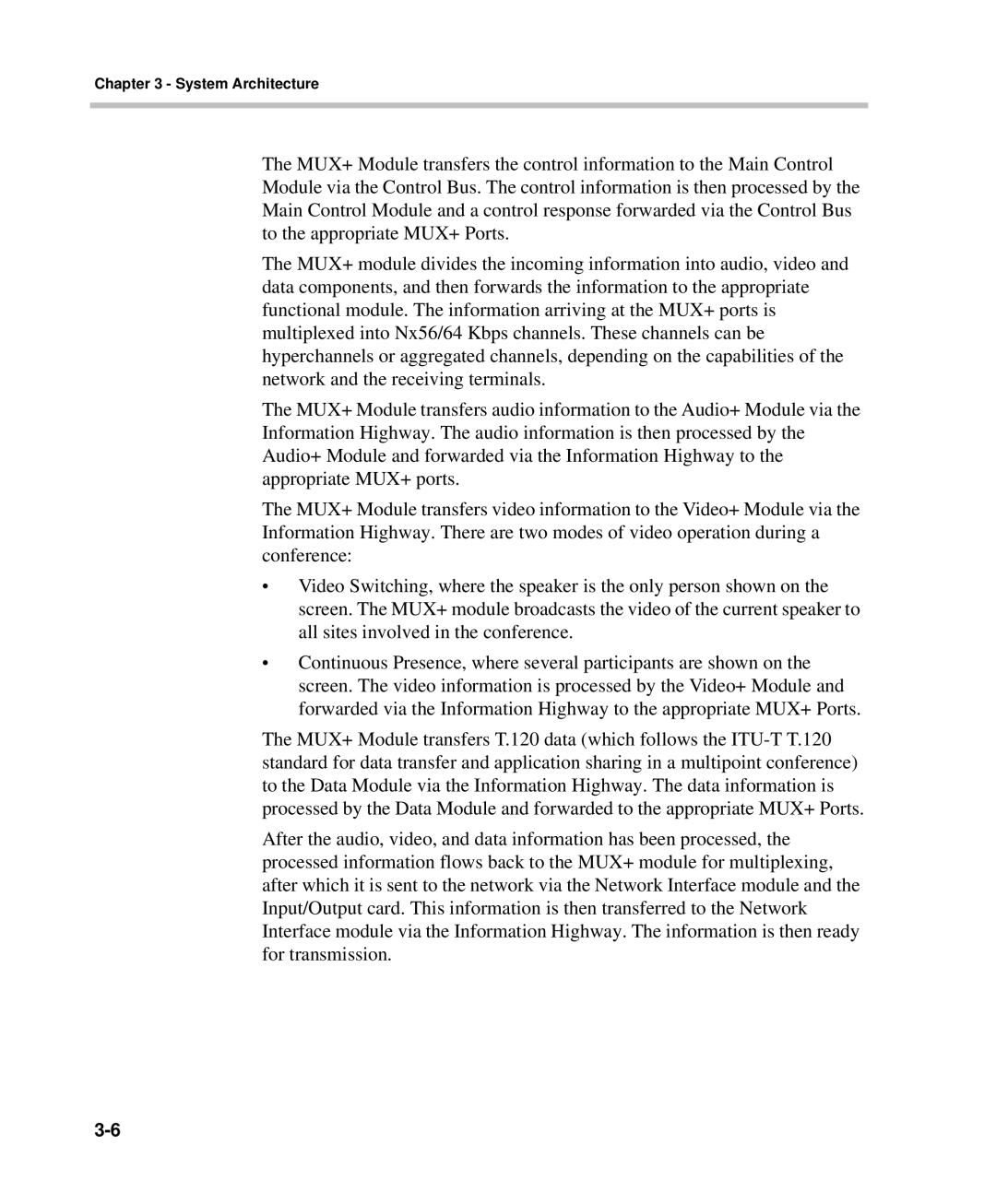Chapter 3 - System Architecture
The MUX+ Module transfers the control information to the Main Control Module via the Control Bus. The control information is then processed by the Main Control Module and a control response forwarded via the Control Bus to the appropriate MUX+ Ports.
The MUX+ module divides the incoming information into audio, video and data components, and then forwards the information to the appropriate functional module. The information arriving at the MUX+ ports is multiplexed into Nx56/64 Kbps channels. These channels can be hyperchannels or aggregated channels, depending on the capabilities of the network and the receiving terminals.
The MUX+ Module transfers audio information to the Audio+ Module via the Information Highway. The audio information is then processed by the Audio+ Module and forwarded via the Information Highway to the appropriate MUX+ ports.
The MUX+ Module transfers video information to the Video+ Module via the Information Highway. There are two modes of video operation during a conference:
•Video Switching, where the speaker is the only person shown on the screen. The MUX+ module broadcasts the video of the current speaker to all sites involved in the conference.
•Continuous Presence, where several participants are shown on the screen. The video information is processed by the Video+ Module and forwarded via the Information Highway to the appropriate MUX+ Ports.
The MUX+ Module transfers T.120 data (which follows the
After the audio, video, and data information has been processed, the processed information flows back to the MUX+ module for multiplexing, after which it is sent to the network via the Network Interface module and the Input/Output card. This information is then transferred to the Network Interface module via the Information Highway. The information is then ready for transmission.
